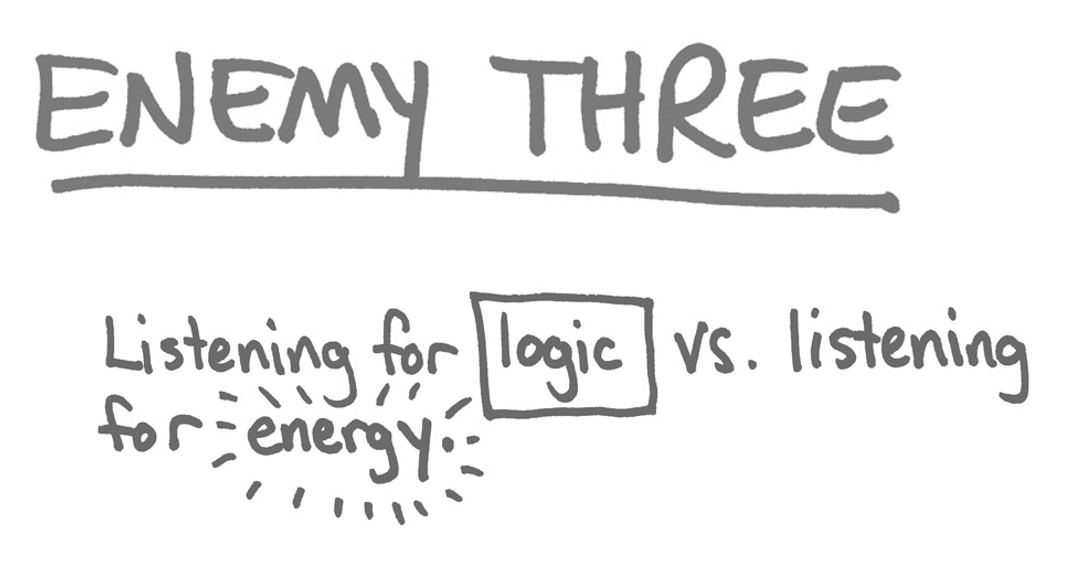Westside Toastmasters is located in Los Angeles and Santa Monica, California - Westside Toastmasters on Meetup
Exercise
Get To Know Someone
A friend asks her clients to write a list of everything they know about the person they're communicating with, including a list of the things that they can appreciate about that person. After all, the person is someone's child, brother, friend. Think about someone in your company, about your competition, about your customers.
What's their background? What's their history?
What's important to them? Why are they at this meeting?
What motivates them?
What's missing for them?
What are their hopes and fears?
Most of us write down the logical things that are said in meetings: 'That seems like the sensible course of action.' There are always ideas that seem perfectly rational, seem to solve the problem at hand, and yet have no 'spark' in them. They are the equivalent of middle-of-the-road political candidates: They satisfy all the basic requirements, but they won't get anyone up out of their chair to go to the polls.
How many times have you seen a movie (or even a 'coming attractions' trailer for a movie) and realized that you know exactly how everything will turn out? A leads to B leads to C . . . all the necessary plot points are covered (car chase! love scene! heart-tugging ending!), and the movie unspools in a completely predictable fashion. Everything makes sense, but nothing is exciting. The best moments come when something unexpected enters the story-not something completely random, but a twist, a jolt that pushes the action out of the predictable.
In a meeting, the 'logical' idea is often one that can be completely understood immediately. You know how everything will turn out. There are no surprises. The idea with energy behind it is often a surprise-and it gets a reaction.
You can see how listening for logic easily goes hand-in-hand with the first enemy of innovation, giving in to fear. If you're looking for no risk, then every idea should be rational, by-the-numbers, and completely unsurprising. If you're only listening for logic, then any idea that's new can immediately be picked apart and found to be unworkable (many times, we'll do this in our heads before a new idea has a chance to make it out into the room).
When you're listening for energy, write down the thing that makes the room react. What makes people laugh? Groan? Get angry?
Write down all the ideas with colored pencils, markers, or crayons. Tepid ideas get tepid colors; energetic ideas get written down in big, bold letters. Draw circles around them; decorate them with stars; follow them with exclamation points! The ideas that make a stir in the meeting room have a nugget of energy that will get a reaction from your customers as well.
The secret of listening for energy is having the patience to figure out how to make the energetic ideas doable. It requires being able to engage in 'what-ifs' without dismissing anything as impossible.
Hold on to those ideas that spark a reaction, even if it's not immediately clear how they can be put into practice. How can we expect to get a reaction from the marketplace when we can't get a reaction from our team?
This brings us back to the idea of left-brain-right-brain cooperation. Use the right brain to make the 'leaps of logic' that generate ideas, and use the left brain to find a way to make those ideas work. One side supplies the raw material; the other side edits, shapes, and polishes. Just don't try to make the left brain do the right brain's work. Let energy come first, then use logic.




